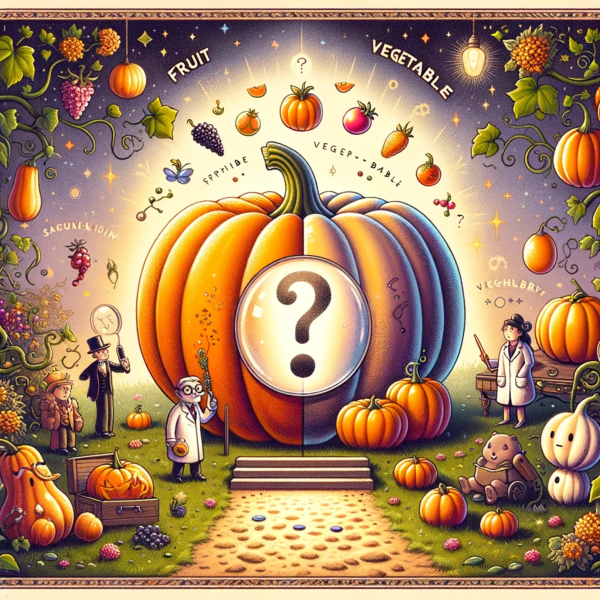Every year on February 14th, people all around the world celebrate love and affection on a day known as Valentine's Day. It is a day filled with hearts, flowers, chocolates, and romantic gestures. But have you ever wondered about the origins and history of this beloved holiday?
Valentine's Day has a rich history that dates back centuries. Its roots can be traced back to ancient Rome, where a festival called Lupercalia was celebrated in mid-February. This festival was dedicated to fertility and the coming of spring. It involved various rituals, including the pairing of young men and women through a lottery system.
As the centuries passed, the holiday evolved and took on a more romantic connotation. The name 'Valentine' became associated with love and affection thanks to the legends and stories surrounding Saint Valentine, a Christian martyr who lived during the 3rd century. It is believed that Saint Valentine performed secret marriages for soldiers who were forbidden to marry. He was eventually executed for his actions, and his death was commemorated on February 14th.
Over time, Valentine's Day became a day to express love and admiration for one another. The exchange of handwritten notes and love letters became a popular tradition during the Middle Ages. By the 18th century, it became common to give gifts and tokens of affection, such as flowers and chocolates, to loved ones. Today, Valentine's Day has become a global celebration of love, with people of all ages and backgrounds participating in the festivities.
What is Valentine's Day? An Overview
Valentine's Day, also known as Saint Valentine's Day, is celebrated on February 14th each year. It is a day dedicated to love and romance, where people express their affection for one another. While it is primarily associated with romantic love, it is also a time to show appreciation and affection to friends and family.
The origins of Valentine's Day can be traced back to ancient Roman times. There are several legends and stories about the origins of this holiday, but the most popular one is the story of Saint Valentine.
Saint Valentine was a Roman priest who lived in the third century. During this time, Emperor Claudius II prohibited young men from marrying, as he believed that married men made poor soldiers. Saint Valentine defied this order and continued to perform marriages in secret. When his actions were discovered, he was imprisoned and later executed on February 14th.
Valentine's Day became associated with love and romance due to the actions of Saint Valentine. It is believed that while he was imprisoned, he sent a letter to a young girl he had fallen in love with and signed it 'From your Valentine.' This phrase has since become synonymous with the holiday.
Today, Valentine's Day is celebrated around the world with various customs and traditions. It is common to exchange gifts, such as flowers, chocolates, and greeting cards, with loved ones. Many people also go out for romantic dinners or plan special activities to celebrate the day.
Whether you are in a romantic relationship or not, Valentine's Day is a time to show love and appreciation for the people in your life. It serves as a reminder to cherish and celebrate the connections we have with others.
How do you explain what Valentine's Day is?
Valentine's Day is an annual celebration of love and affection that takes place on February 14th. It is a day when people express their love and appreciation for one another, often through the exchange of gifts, cards, and romantic gestures.
The origins of Valentine's Day can be traced back to ancient Roman times, where it was celebrated as a fertility festival called Lupercalia. Over time, the holiday evolved into a day associated with love and romance.
blonde highlights
Today, Valentine's Day is celebrated around the world and is often seen as a day to show love not only to romantic partners but also to friends, family members, and anyone else who holds a special place in one's heart. It is a day to express gratitude and affection and to strengthen the bonds of relationships.
Typical Valentine's Day activities include giving and receiving cards, flowers, chocolates, and other gifts. Many people also plan special dates or outings with their loved ones, such as romantic dinners or weekend getaways.
While Valentine's Day has become heavily commercialized in many countries, with the sale of Valentine-themed merchandise and advertisements promoting the perfect gift, it is important to remember that the true essence of the holiday lies in the expression of love and appreciation for those who are important to us.
Whether it is a grand romantic gesture or a simple heartfelt message, Valentine's Day provides an opportunity to celebrate love in all its forms and to make those we care about feel cherished and valued.
What is Valentine's day basic?
Valentine's Day is an annual holiday celebrated on February 14th. It is a day when people express their love and affection for one another, typically through the exchange of cards, gifts, and romantic gestures.
The origins of Valentine's Day can be traced back to ancient Roman times, where the holiday was originally known as Lupercalia. Lupercalia was a fertility festival celebrated on February 15th. During this festival, young men would draw the names of young women from a box and they would be paired up for the duration of the festival. This tradition eventually evolved into the more romantic holiday that we know today as Valentine's Day.
In the Middle Ages, Valentine's Day became associated with courtly love, a concept that emphasized chivalrous and noble expressions of love. It was during this time that the first written Valentine's Day greetings were exchanged.
Today, Valentine's Day is celebrated around the world and has become a commercialized holiday. People give flowers, chocolates, and other gifts to their loved ones as a way of showing their affection. It is also a popular day for couples to go out on dates and spend quality time together.
While Valentine's Day is often associated with romantic love, it is also a day to celebrate all types of love, including friendships and family relationships. It is a day to express gratitude and appreciation for the people in our lives who bring us joy and support.
Whether you celebrate Valentine's Day with a romantic partner, friends, or family, the basic idea behind the holiday remains the same - to show love and affection to those who are important to us.
Is there a point to Valentine's day?
Valentine's Day, celebrated on February 14th, is a holiday that is often associated with love, romance, and affection. However, many people question whether there is a point to this holiday or if it is just another commercialized event.
Some argue that Valentine's Day is a superficial holiday that puts pressure on individuals to buy expensive gifts and participate in grand gestures to prove their love. They believe that love should be celebrated and expressed every day, not just on one designated day of the year.
On the other hand, proponents of Valentine's Day believe that it serves as a reminder to appreciate and cherish our loved ones. It provides an opportunity to express our feelings and show gratitude for the love and companionship we receive. It can also serve as a day to strengthen relationships, create lasting memories, and rekindle the romance.
While it is true that love should be celebrated every day, Valentine's Day can act as a catalyst for individuals to express their emotions and make an extra effort to show their love and appreciation. It can serve as a reminder to prioritize our relationships and make time for our loved ones in our busy lives.
Ultimately, whether or not there is a point to Valentine's Day is subjective and depends on individual beliefs and personal experiences. For some, it may hold great significance and be a day filled with love and joy. For others, it may be just another day on the calendar.
Regardless of one's opinion, Valentine's Day continues to be celebrated around the world, and its traditions and customs have evolved over time. Whether you choose to embrace the holiday or not, the most important thing is to cherish and appreciate the people we love every day.
The History and Origin of Valentine's Day
Valentine's Day, celebrated on February 14th, is a holiday that has its roots in both ancient Roman and Christian traditions. While the exact origin of Valentine's Day is unclear, it is believed to have originated from the ancient Roman festival of Lupercalia.
The festival of Lupercalia was held in mid-February and was a fertility celebration dedicated to Faunus, the Roman god of agriculture, as well as to the Roman founders Romulus and Remus. During this festival, young men would draw names of young women from a box and they would be paired together for the duration of the festival, sometimes leading to marriage.
As the Roman Empire became Christianized, the celebration of Lupercalia was deemed un-Christian and was eventually replaced by the Christian holiday of St. Valentine's Day. The exact identity of St. Valentine is also uncertain, as there were several Christian martyrs named Valentine who were venerated in the early Christian church.
One popular legend is that St. Valentine was a Roman priest who lived during the third century. Emperor Claudius II had banned marriage for young men, believing that single men made better soldiers. St. Valentine, however, continued to perform marriages in secret, defying the emperor's orders. When his actions were discovered, he was sentenced to death and became a martyr for the Christian faith.
Another legend suggests that St. Valentine was imprisoned for helping Christians escape harsh Roman prisons, where they were often beaten and tortured. While in prison, it is said that St. Valentine fell in love with the jailer's daughter and sent her a letter signed 'From your Valentine' before his execution.
Regardless of the exact origins and legends surrounding Valentine's Day, it has evolved over time into a day to celebrate love and affection. Today, it is a popular holiday celebrated in many countries around the world, with couples exchanging gifts, cards, and spending quality time together.
What is the true story behind Valentine's day?
Valentine's Day is celebrated on February 14th every year, but the true story behind this romantic holiday is often shrouded in mystery.
One popular legend suggests that Valentine's Day originated from the story of Saint Valentine, a Roman priest who lived during the third century. At that time, Emperor Claudius II believed that single men made better soldiers, so he outlawed marriage for young men. However, Saint Valentine defied this decree and continued to perform marriages in secret.
When his actions were discovered, Saint Valentine was imprisoned and sentenced to death. While in jail, he fell in love with the jailer's daughter and wrote her a letter expressing his affection. Before his execution, he signed the letter 'From your Valentine,' a phrase that is still used today.
Another theory suggests that Valentine's Day may have originated from the ancient Roman festival of Lupercalia. This festival, which was held on February 15th, involved fertility rituals and the pairing of young men and women through a lottery system. As Christianity spread, the holiday took on a more romantic tone, and it eventually became associated with love and courtship.
The true origins of Valentine's Day remain somewhat unclear, but the holiday has evolved into a celebration of love and affection. Today, people exchange cards, flowers, and chocolates with their loved ones as a way to show their appreciation and devotion.
Whether you believe in the legends or not, Valentine's Day serves as a reminder to cherish the special relationships in our lives and to express our love to those who mean the most to us.
What is the main origin of Valentine's day?
Valentine's Day, also known as Saint Valentine's Day, is celebrated on February 14th each year. The holiday has its roots in ancient Roman and Christian traditions.
There are several theories about the origin of Valentine's Day, but the most popular one dates back to the third century in Rome. It is believed that Emperor Claudius II banned marriage for young men because he believed that single men made better soldiers. However, a Christian priest named Valentine continued to perform marriages in secret. When his actions were discovered, he was imprisoned and sentenced to death.
While in prison, Valentine fell in love with the jailer's daughter. Before his execution on February 14th, he wrote her a letter signed 'From your Valentine,' which is believed to be the first Valentine's Day card. This act of love and sacrifice is said to be the main origin of Valentine's Day.
Over time, Valentine became a martyr and was recognized as a saint by the Roman Catholic Church. In the fifth century, Pope Gelasius I established February 14th as the official feast day to honor St. Valentine.
Throughout the centuries, Valentine's Day has evolved and taken on different meanings. It has become a day to express love and affection to romantic partners, family members, and friends. Today, it is celebrated worldwide with the exchange of gifts, cards, flowers, and chocolates.
The main origin of Valentine's Day is rooted in love, sacrifice, and the enduring power of romantic relationships. It serves as a reminder to cherish and celebrate the love we have for others.
What is the pagan origin of Valentine's day?
Valentine's Day, as we know it today, is often associated with love, romance, and the exchange of heartfelt messages. However, its origins can be traced back to ancient pagan festivals.
One of the earliest possible origins of Valentine's Day is the Roman festival of Lupercalia, which was celebrated on February 15th. During this festival, young men would draw names of young women from a box, and they would then be paired as couples for the duration of the festival. This pairing often led to marriage.
Another possible origin is the feast of Juno Februata, observed on February 14th in ancient Rome. This feast was dedicated to Juno, the goddess of marriage and women, and involved the purification of women and the blessing of their fertility.
how to clean strawberries
The association of romance with Valentine's Day can be traced back to the Middle Ages, when the day became associated with courtly love. It was believed that birds began mating on February 14th, and this notion further added to the romantic connotations of the day.
Over time, these pagan customs and beliefs merged with Christian traditions, and Valentine's Day became associated with the Christian martyr Saint Valentine. The exact origins of Saint Valentine and his connection to romance are unclear, but he is often associated with love and affection.
While Valentine's Day may have pagan origins, it has evolved over the centuries to become a celebration of love and affection. Today, it is a day when people express their love for one another through acts of kindness, gift-giving, and romantic gestures.
Valentine's Day Celebrations and Traditions
Valentine's Day is celebrated in various ways around the world, with different cultures and regions having their own unique traditions. While the core idea of expressing love and affection remains the same, the customs and practices associated with the holiday differ significantly. Here are some of the popular Valentine's Day celebrations and traditions observed globally:
- Exchanging of Cards and Gifts: One of the most common traditions on Valentine's Day is the exchange of cards and gifts. People often express their love and affection by giving each other heartfelt messages written on cards, along with chocolates, flowers, or other thoughtful gifts.
- Romantic Dinners: Many couples celebrate Valentine's Day by having a romantic dinner together. Restaurants and cafes often offer special Valentine's Day menus or promotions to cater to couples looking for a romantic dining experience.
- Love Notes and Letters: Some individuals choose to go old-fashioned and express their feelings through handwritten love notes and letters. These heartfelt messages are often kept as cherished mementos.
- Surprise Dates and Getaways: A popular way to celebrate Valentine's Day is by planning surprise dates or getaways. This could include surprise outings, weekend trips, or even romantic vacations to create lasting memories.
- Valentine's Day Parties: Many people celebrate Valentine's Day by attending or hosting themed parties. These parties often include games, music, and decorations centered around love and romance.
- Flower Exchanges: Flowers, especially red roses, are a common symbol of love on Valentine's Day. Many people exchange flowers with their loved ones as a gesture of affection.
- Charitable Acts: Some individuals and organizations use Valentine's Day as an opportunity to spread love and kindness to those in need. This can involve volunteering, donating to charities, or performing random acts of kindness.
While these are just some of the many ways Valentine's Day is celebrated, the underlying theme remains the same - to express love and appreciation for those who hold a special place in our hearts.
What are common Valentine's day traditions?
Valentine's Day is known for its traditions that have been celebrated for centuries. Some of the most common Valentine's Day traditions include:
1. Exchanging Valentines: One of the most popular traditions is exchanging Valentine's Day cards, also known as Valentines. These cards can be handmade or store-bought and are often accompanied by heartfelt messages expressing love and affection.
2. Sending flowers: Another common tradition is giving flowers, particularly roses, as a symbol of love and romance. Red roses are especially popular on Valentine's Day, as they are believed to represent deep love and passion.
3. Chocolate and sweets: Chocolates and other sweet treats are often exchanged on Valentine's Day as a symbol of indulgence and affection. Heart-shaped chocolates and boxes of assorted candies are commonly given as gifts.
4. Romantic dinners: Many couples celebrate Valentine's Day by going out for a romantic dinner. Restaurants often offer special Valentine's Day menus and packages, creating a romantic atmosphere for couples to enjoy a delicious meal together.
5. Romantic gestures: Valentine's Day is a popular day for romantic gestures, such as surprise gifts, love letters, and acts of kindness. Couples may plan special surprises or activities to show their love and appreciation for each other.
6. Couple's activities: Some couples choose to celebrate Valentine's Day by engaging in activities together. This can include going for a walk, watching a movie, or participating in a shared hobby or interest.
7. Heart-shaped decorations: Many people decorate their homes or workplaces with heart-shaped decorations, such as heart-shaped balloons, garlands, and banners. These decorations add a festive touch to the Valentine's Day celebrations.
8. Valentine's Day crafts: Children often celebrate Valentine's Day by creating handmade crafts, such as paper hearts or Valentine's Day cards, to give to their friends, family members, or classmates.
These are just a few of the common Valentine's Day traditions that people around the world celebrate. Whether it's exchanging heartfelt cards, giving flowers and chocolates, or enjoying a romantic dinner, Valentine's Day is a day to express love and affection for those who are important to us.
What are ways to celebrate Valentine's day?
Valentine's Day is a special occasion to celebrate love and affection. It is the perfect opportunity to show your loved ones how much you care. Here are some wonderful ways to celebrate this romantic day:
1. Plan a romantic dinner: Surprise your partner by cooking their favorite meal or make a reservation at a fancy restaurant. Set the mood with candles, soft music, and a beautifully decorated table.
2. Write a heartfelt letter: Express your love and appreciation by writing a heartfelt letter to your significant other. Share your feelings, memories, and dreams for the future. This personal touch will be cherished forever.
3. Create a DIY gift: Show your creativity by making a personalized gift for your loved one. It could be a scrapbook of your favorite memories together, a handcrafted piece of jewelry, or a love coupon book filled with special favors.
4. Plan a surprise outing: Surprise your partner with a fun and exciting outing. It could be a picnic in the park, a hike to a scenic spot, a visit to a museum or art gallery, or even a weekend getaway to a romantic destination.
5. Enjoy a movie night at home: Create a cozy atmosphere at home by watching romantic movies together. Prepare some popcorn, snuggle up on the couch, and enjoy a night full of love stories and happy endings.
6. Pamper yourselves with a spa day: Book a couples' spa day and indulge in a day of relaxation and rejuvenation. Get massages, facials, and enjoy the soothing ambiance together. It is a great way to bond and de-stress.
7. Volunteer together: Spread love and compassion by volunteering together for a charitable cause. It could be serving meals at a homeless shelter, visiting a nursing home, or organizing a fundraiser. Giving back to the community can strengthen your bond.
8. Surprise with small gestures: Show your love and appreciation through small gestures throughout the day. Leave love notes around the house, surprise them with their favorite treat, or send them a bouquet of flowers at work. These little surprises will make them feel cherished.
Remember, the most important aspect of celebrating Valentine's Day is to spend quality time together and show your love and affection. It doesn't have to be extravagant or expensive; it's the thought and effort that counts.
Why celebrating Valentine's Day is important?
Valentine's Day, celebrated on February 14th every year, is an important occasion that holds a significant place in many people's hearts. It is a day dedicated to expressing love and affection towards our loved ones, be it romantic partners, family members, or friends. While some may argue that Valentine's Day is a commercial holiday, there are several reasons why celebrating it is important.
First and foremost, Valentine's Day provides an opportunity to show appreciation and gratitude to the people we care about. In our busy lives, it is easy to take our loved ones for granted. Valentine's Day serves as a reminder to pause, reflect, and express our love and gratitude towards them. It allows us to strengthen our relationships and deepen the bond we share with our partners, family, and friends.
Celebrating Valentine's Day also promotes emotional well-being and happiness. Love and affection have a positive impact on our mental and emotional health. Expressing love and receiving love releases endorphins, which are known as the 'feel-good' hormones. It creates a sense of happiness, contentment, and fulfillment in our lives. By celebrating Valentine's Day, we can spread joy, positivity, and love in our surroundings.
Moreover, Valentine's Day encourages us to be more thoughtful and creative in expressing our love. It inspires us to go the extra mile to make our loved ones feel special and cherished. Whether it is through heartfelt messages, thoughtful gifts, or acts of kindness, Valentine's Day provides an opportunity to show our love in unique and meaningful ways. It allows us to make lasting memories and create traditions that will be cherished for years to come.
Lastly, celebrating Valentine's Day strengthens the fabric of our society. It promotes the values of love, compassion, and empathy. By celebrating love, we foster a sense of unity and togetherness among individuals and communities. It serves as a reminder that love knows no boundaries and that everyone deserves to be loved and appreciated.
In conclusion, celebrating Valentine's Day is important as it allows us to express our love, strengthen relationships, promote emotional well-being, and foster a sense of unity. It is a day to celebrate and appreciate the people who make our lives better. So, this Valentine's Day, let us embrace the spirit of love and make it a memorable and meaningful day for our loved ones.
What does Valentine's day mean spiritually?
Valentine's day is not just a day for expressing love and affection towards our partners, but it also holds a deeper spiritual meaning. It is a day to celebrate the power of love and its transformative nature.
In a spiritual context, Valentine's day serves as a reminder to cultivate love and compassion in our hearts, not only towards our loved ones but also towards all beings. It is a day to reflect on the essence of love and its connection to our higher selves.
Love, in a spiritual sense, is seen as a divine force that transcends boundaries and unites all living beings. It is a force that has the power to heal, uplift, and transform us. Valentine's day encourages us to tap into this divine love and extend it to everyone we encounter.
On this day, we can take a moment to reflect on the love that exists within us and the love that surrounds us. We can express gratitude for the relationships and connections we have in our lives and send love and blessings to those who may be in need of it.
Valentine's day also reminds us to practice self-love and self-care. It is a time to nurture our own hearts and fill ourselves with love, so that we can radiate that love outwards. By taking care of ourselves and cultivating self-love, we are better able to show up fully in our relationships and spread love to others.
Ultimately, Valentine's day is a spiritual celebration of love in its purest form. It is a day to honor and appreciate the divine love that flows through us and connects us all. It serves as a reminder to live with an open heart, to be kind and compassionate, and to always choose love in all that we do.
Q&A:
What is the origin of Valentine's Day?
Valentine's Day originated from ancient Roman festivals, particularly Lupercalia, which was a fertility celebration. It was later associated with Saint Valentine, a Christian martyr who was executed on February 14th. The holiday became popular in the Middle Ages and has since been celebrated as a day of love and romance.
Why is Valentine's Day celebrated on February 14th?
Valentine's Day is celebrated on February 14th because it was the day when Saint Valentine was executed. Over time, this day became associated with love and romance, and people started exchanging love notes and gifts to express their affection for one another.
What are some traditional Valentine's Day gifts?
Some traditional Valentine's Day gifts include flowers, particularly red roses, chocolates, romantic cards or love letters, and jewelry. These gifts are often given as a symbol of love and affection to a romantic partner or someone special.
How is Valentine's Day celebrated around the world?
Valentine's Day is celebrated in various ways around the world. In some countries, like the United States, it is common to exchange cards and gifts with loved ones. In other countries, such as Japan, women give chocolates to men on Valentine's Day, while men reciprocate on a separate holiday called 'White Day.' In some cultures, Valentine's Day is also a day to show appreciation for friends and family, not just romantic partners.
Is Valentine's Day only for couples?
No, Valentine's Day is not only for couples. While it is often associated with romantic love, many people also celebrate the holiday by expressing love and appreciation for their friends, family members, and even pets. It is a day to celebrate all types of love and show appreciation for the people who are important in our lives.
What is the origin of Valentine's Day?
Valentine's Day has its roots in ancient Roman rituals, specifically the festival of Lupercalia. It was a fertility festival celebrated on February 15th. Later, the Catholic Church combined Lupercalia with the feast day of St. Valentine, a Christian martyr, to create Valentine's Day.
Why do we send Valentine's Day cards?
Sending Valentine's Day cards is a tradition that dates back to the 18th century. It originated in England, where people would exchange handwritten notes expressing their affection for one another. This practice eventually evolved into the mass production of Valentine's Day cards, which are now commonly sent to loved ones to show appreciation and love.





